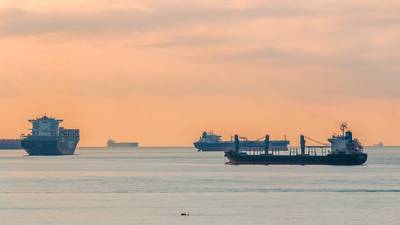Report: Shipping Unlikely to Meet 2030 Targets
The global shipping industry is not on track to meet its target of having zero-emission fuels account for 5% of all fuels by 2030, according to a new report from the UCL Energy Institute, UN Climate Change High-Level Champions and the Getting to Zero Coalition.
The third annual progress report, Progress Towards Shipping’s 2030 Breakthrough, warns that the next 12 months are critical to avoid shipping falling irreparably behind its climate goals.
The IMO set a goal of ensuring that zero- or near-zero emission fuels make up 5% to 10% of all shipping fuels by 2030. The 5% target is considered the critical mass at which the infrastructure, supply chains and technology that support zero-emission fuels mature and enable exponential growth. This means if the 5% target is not achieved, it could jeopardize the industry's entire 2050 net-zero goal.
According to the report, production of scalable zero-emissions fuel currently in the pipeline could, under the more conservative scenario, end up covering less than half of the fuel needed to hit the 2030 target, while the current order book of zero emission-capable vessels would only deliver around 25% of required demand by the same year. Finance is also now off track due to a slowdown in funding change and more funding going towards fossil-fueled vessels.
"The speed at which the shipping industry adopts hydrogen-derived fuels will shape the success and the cost of this transition for decades to come,” said Dr. Domagoi Baresic, Research Fellow at the UCL Energy Institute.
“Extensive adoption of such fuels by 2030 remains within reach but will require significant and immediate action by policymakers, fuel suppliers, and the shipping industry over the next 12 months. Without such action, the transition will be much longer, costlier and have a less positive environmental impact. All the ingredients for a rapid adoption already exist, but it is up to the relevant actors to make it a reality."
Of the 35 actions required to deliver the 2030 breakthrough, just eight are considered ‘on track’, while 13 have been classed as ‘off track’ – up from eight in last year’s edition of the report. The remaining 14 are only ‘partially on track’.
However, the report also stresses that meeting the goal is still achievable if action is stepped up. It points to strong progress on actions in policy and supply system as examples of success.












